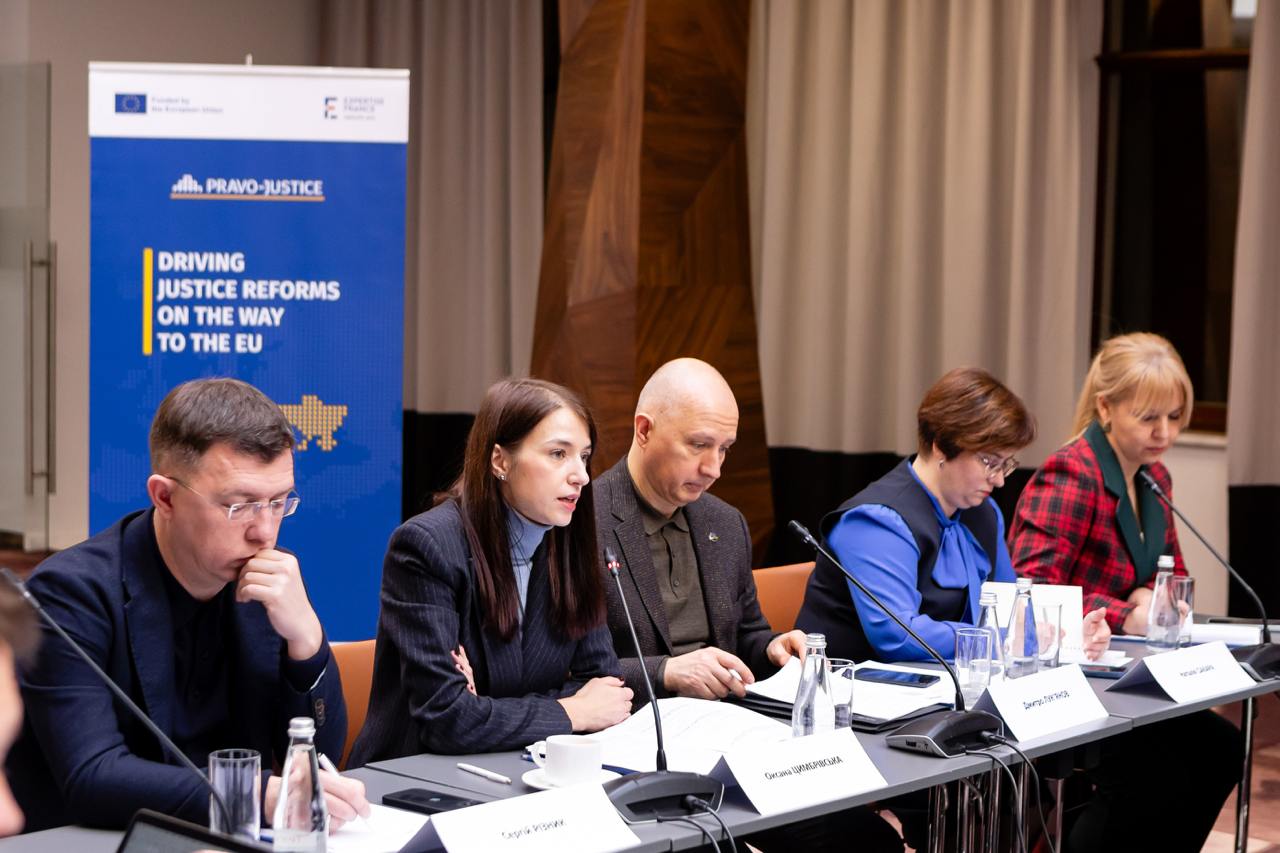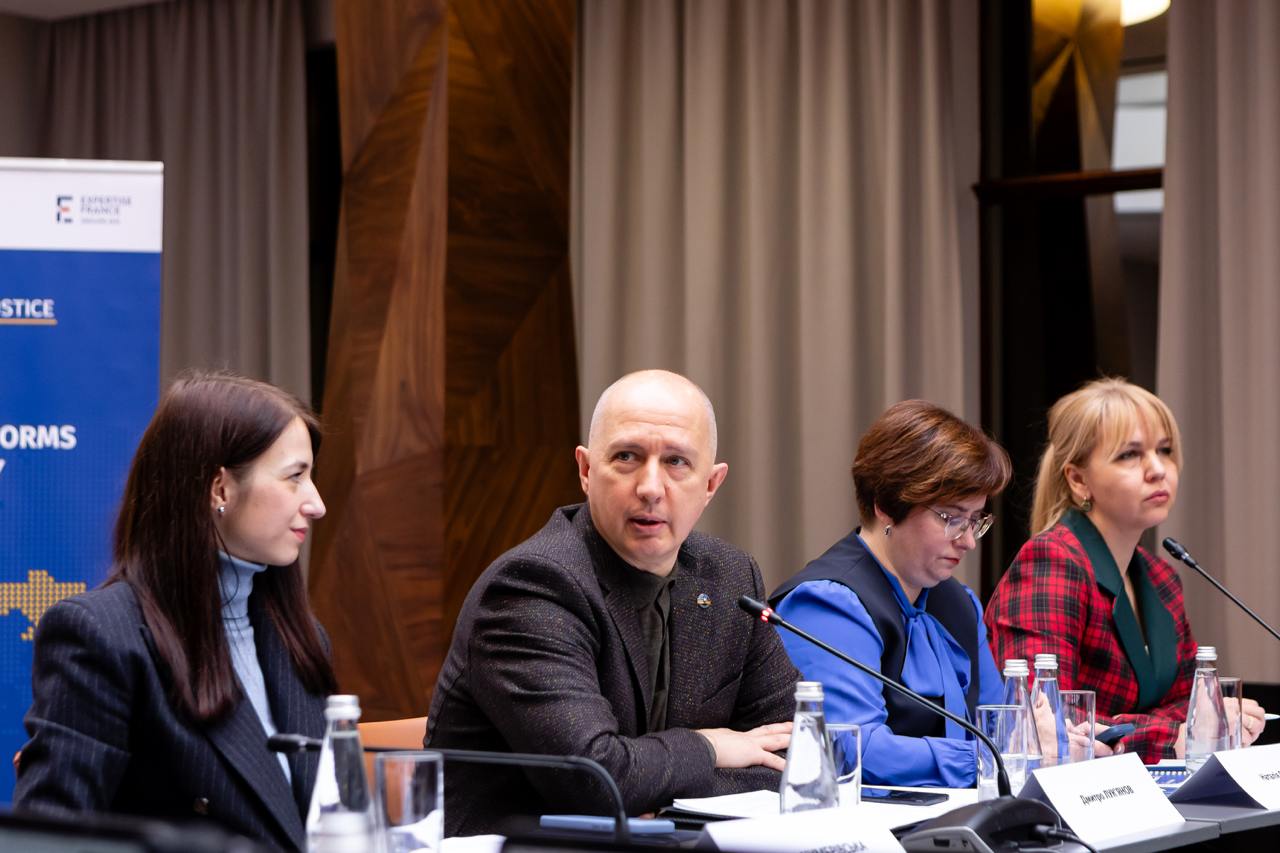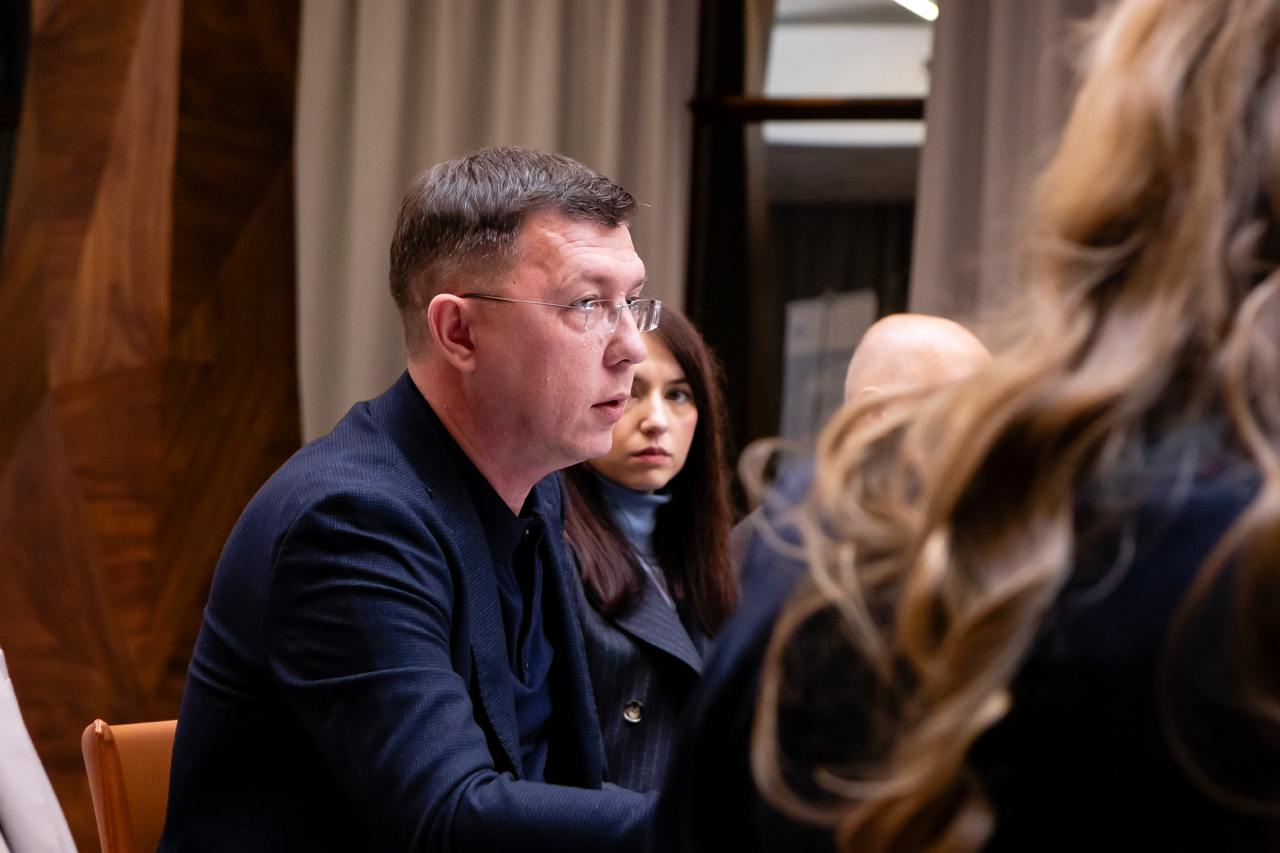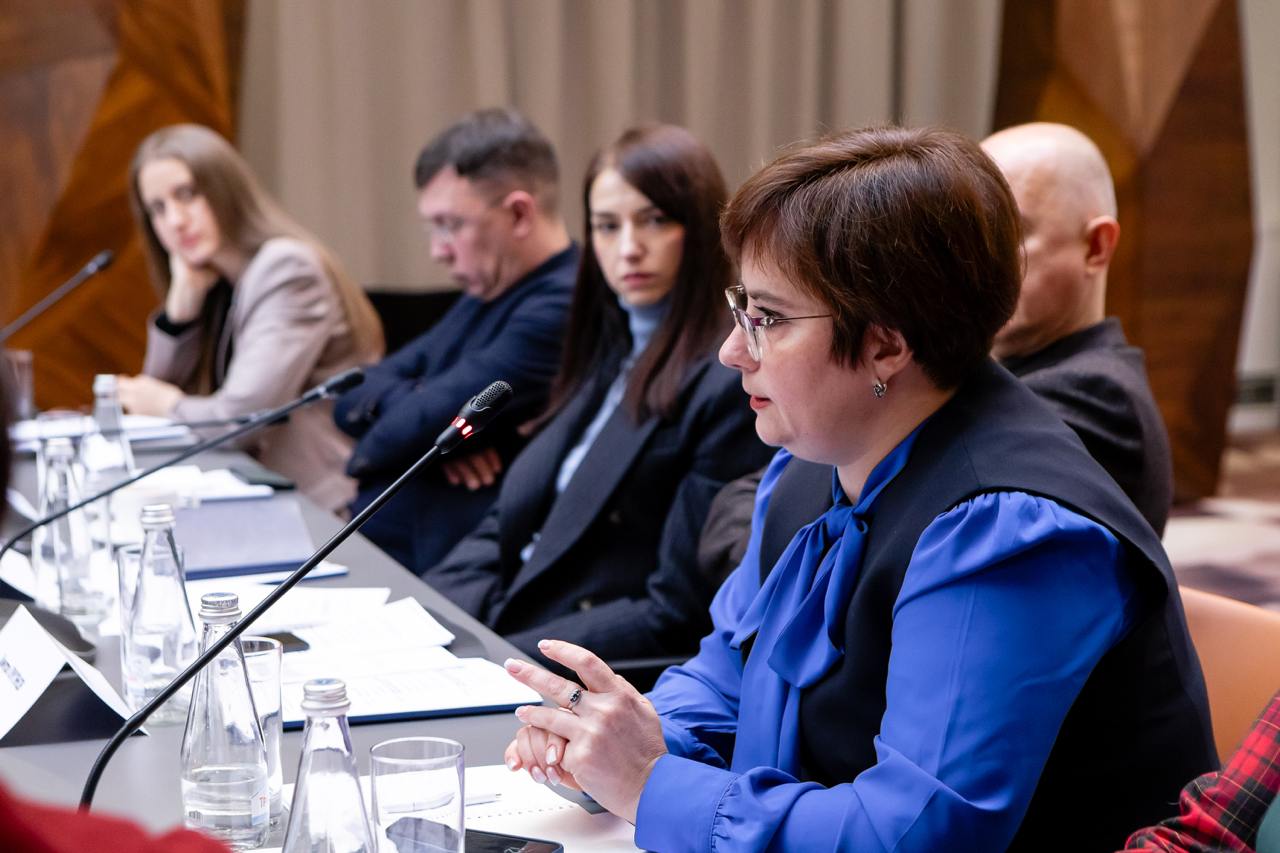EU Project Pravo-Justice Organised Roundtable Event on Rule of Law and Judicial Ethics in the Training of Judges

On 6 December, a roundtable discussion ‘Rule of Law and Judicial Ethics in the Training of Judges: Challenges and Responsibilities in the Context of European Integration’ took place in Lviv. EU Project Pravo-Justice organised the event in cooperation with the National School of Judges of Ukraine.

Mykola Onishchuk, Rector of the National School of Judges of Ukraine, noted that when Ukraine chose the European course of development, it undertook several important commitments. One of the key obligations is to ensure the rule of law, which means that judges must make fair and impartial decisions, as well as adhere to the highest ethical standards.
‘In particular, the training of judges on the rule of law and EU standards was identified as a priority during the first bilateral meetings between Ukraine dedicated to legal screening. So, it is no coincidence that the Training Agency for EU Law was established within the National School of Judges of Ukraine. Now we are working on building its institutional capacity and human resources, defining focus areas and modalities for accomplishing its objectives,’ he said.
Mykola Onishchuk also presented the training initiatives implemented by the National School of Judges in cooperation with EU Project Pravo-Justice, including the updated training course ‘Rule of Law and Judicial Ethics’. According to him, the principles of judicial ethics that play a key role in building public trust in the judiciary are currently being integrated into the curriculum of the National School of Judges.

In turn, Oksana Tsymbrivska, Team Leader of EU Project Pravo-Justice, noted that the rule of law and judicial ethics play a crucial role in judicial training as they underpin fair trial and constitute the cornerstone of a democratic society.
‘The rule of law enshrined in the Constitution of Ukraine as a fundamental principle is particularly significant in our modern society, especially in the context of transformations in the context of European integration. After all, the rule of law is the foundation of the values and standards of the European Union uniting all 27 Member States,’ said the Team Leader of EU Project Pravo-Justice.
She stressed that high-quality training of judges is an essential prerequisite in this process. After all, judges guarantee the administration of justice, ensure public trust in justice and protect human rights.
Therefore, EU Project Pravo-Justice is paying special attention to training curricula for judges aimed at improving their understanding and application of the rule of law and judicial ethics. These endeavours are particularly implemented in cooperation with the National School of Judges. According to her, it is also planned to create an online interactive course on the rule of law soon. It will be available to all judges, judicial assistants, and judicial candidates, significantly expanding training and self-development opportunities. Moreover, in July, EU Project Pravo-Justice produced a dedicated Manual on the Rule of Law Case Law of the Court of Justice.

Dmytro Lukianov emphasised that it is crucial for the High Council of Justice to apply the rules of judicial ethics in the context of disciplinary responsibility based on the principles of the rule of law, namely legal predictability and legal certainty.
‘When the High Council of Justice considers the grounds for bringing a judge to responsibility under this provision, it certainly analyses the judge’s behaviour against the standards set out in the Code of Judicial Ethics, which are in line with the Bangalore Principles of Judicial Conduct. These fundamental instruments will soon be expanded by another document – the Unified Indicators for Assessing Judicial Integrity and Professional Ethics, which, under the legal requirements, is to be approved by the High Council of Justice,’ he said.

Serhii Riznyk, a justice of the Constitutional Court of Ukraine, referred to the Ukrainian formula of the rule of law principle, which Ukraine is now asserting on the battlefield.
‘It is quite simple and obvious only at first glance. This formula is enshrined in Article 8 of the Constitution. According to it, the principle of the rule of law is recognised and implemented in Ukraine. By and large, we have accomplished the stage of recognition. However, there are a lot of challenges with its implementation,’ he emphasised.
According to him, today, the courts in the judicial system, not only the CCU and the Supreme Court, must look for specific tools to implement the rule of law, going beyond its mere recognition, especially in the context of European integration. After all, the path of European integration is one of the major criteria for the constitutionality of legal regulations.
Serhii Riznyk also noted that the Constitutional Court of Ukraine has started the procedure of adopting the Code of Ethics for CCU justices. Meanwhile, he said that the document is not yet being considered from the viewpoint of disciplinary responsibility.

In her speech, Nataliia Sakara, justice of the Civil Court of Cassation within the Supreme Court, focused on the practical implications of the rule of law principle, particularly how it should be taken into account in the context of applying procedural law.
‘The rule of law is a dynamic system of requirements. It is always expanding and being updated. We must teach judges to develop analytical skills, exercise their discretion in each situation, and apply the principle of the rule of law,’ she said.
The roundtable event featured three panel discussions:
- The rule of law in the focus of judicial work: Ukraine’s commitments in the context of European integration;
- Specifics of judicial training on the rule of law and judicial ethics: current challenges and needs;
- Practical aspects of applying the principle of legal certainty as an element of the rule of law in judicial work.
Download Manual on the Rule of Law Case Law of the Court of Justice here